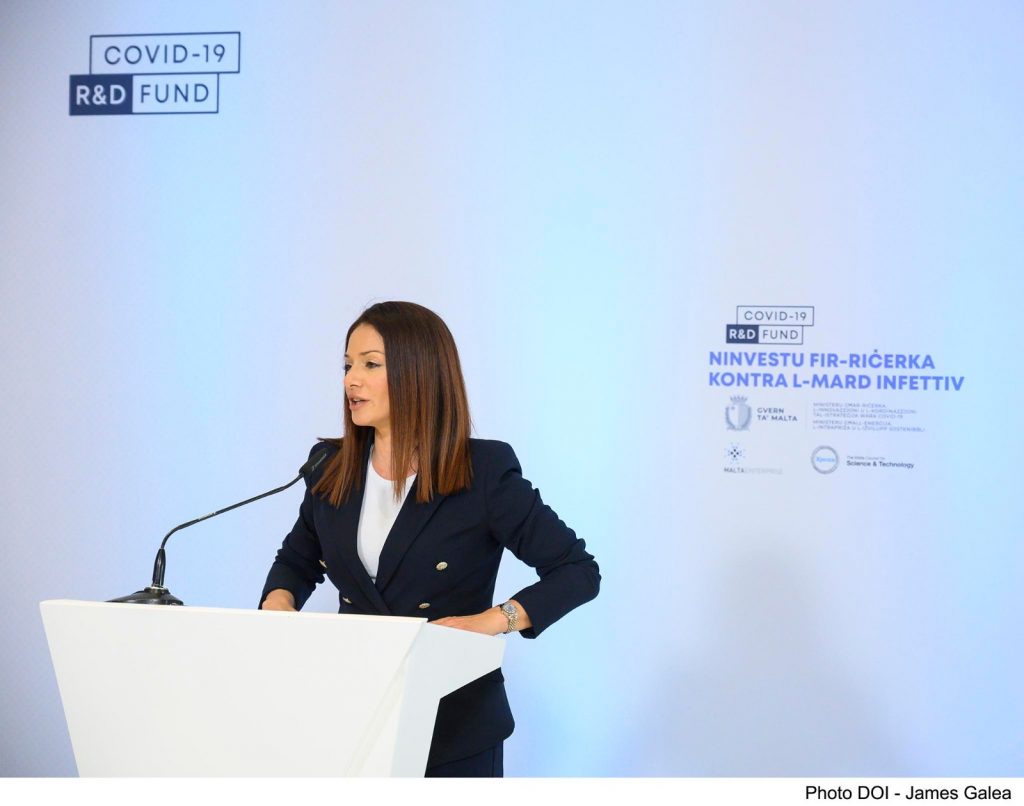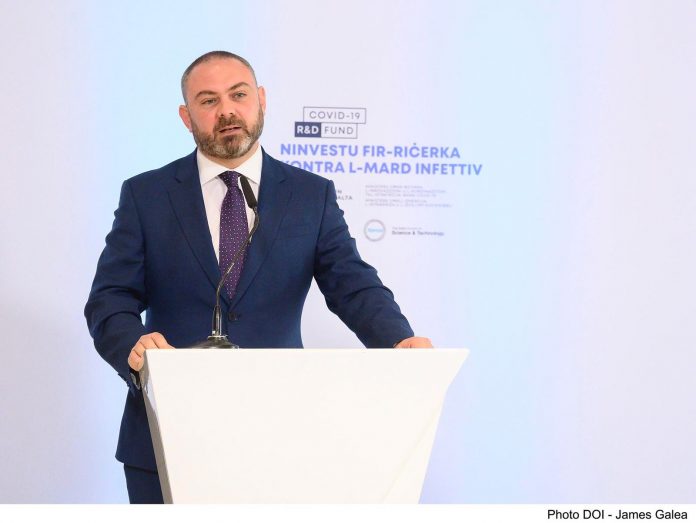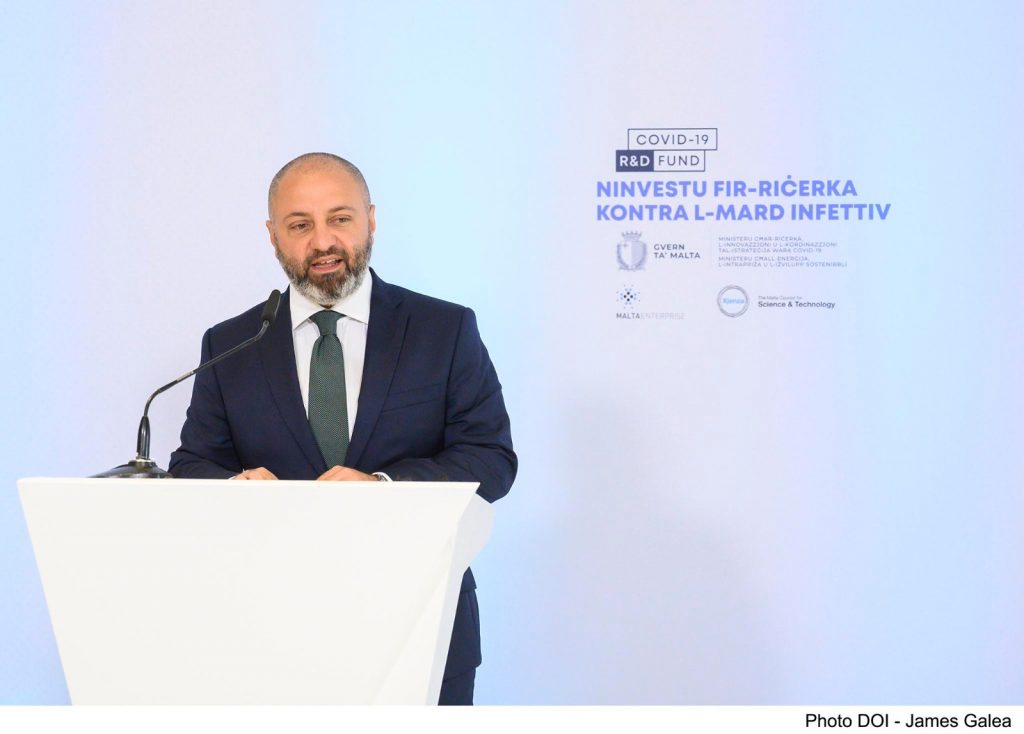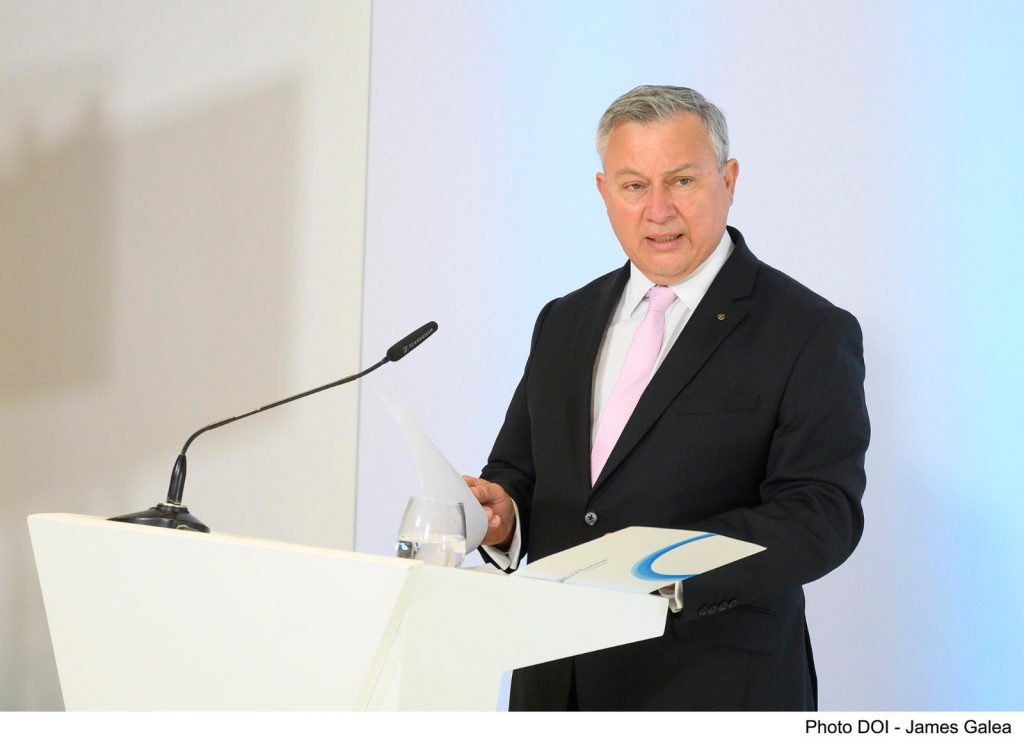Four research projects seeking solutions for infectious diseases have benefitted from the COVID-19 R&D Fund, which is being administered by the Malta Council for Science and Technology (MCST) and Malta Enterprise.
The COVID-19 R&D Fund was set up in response to the global coronavirus pandemic. The main objective was to provide innovative or improved approaches with regards to current or future infectious diseases prevention, control and containment of the spread.
The selected projects, whose value amounts to €3.54 million, were announced during a press conference addressed by Minister for Research, Innovation and the Co-ordination of Post Covid-19 Strategy Owen Bonnici and Minister for Energy, Enterprise and Sustainable Development Miriam Dalli.
The aim of the projects is to provide health-related solutions for infectious diseases, and were awarded following an open and transparent selection process. These are;
1. ‘CoV-Plex’, which aims to develop a multiplex assay to determine SARS-COV-2 strains and specific antibody-producing transcripts;
2. ‘TargetID’, whose objective is to provide novel drug targets for infectious diseases;
3. ‘ACE’, which is focused on the rapid development of an innovative therapeutic approach against SARS-CoV-2’; and
4. ‘SANITAS’, which plans to use plasma-activated solutions to prevent infections.
Minister for Research, Innovation and the Co-ordination of Post Covid-19 Strategy Owen Bonnici praised the collaboration between MCST and Malta Enterprise which led to this novel fund, which is far-reaching and significant.
“The amount of funding which is being provided for research is unprecedented, and it deals with a crucial aspect which affects the lives and well-being of people,” Minister Bonnici said. He explained that this is also an investment in the talent of our researchers and is testament to the fact that science and research are key for a better future.
Minister for Energy, Enterprise and Sustainable Development Miriam Dalli said that patients will benefit from direct assistance as a result of this investment. Simultaneously, it will also strengthen our fight against infectious diseases.

“Our commitment is to continue to strengthen research and innovation in our country, as there is an opportunity for great potential. We will continue to work on new economic opportunities by investing in research and development. In health projects, research investment leads to solutions that patients will benefit from,” said Minister Dalli. “Investing continuously in research and development across different fields leads us to new opportunities, and therefore Malta Enterprise is committed to continue assisting innovative projects by entrepreneurs.”
Also present for the conference were Malta Enterprise CEO Kurt Farrugia and MCST Chairman Dr Jeffrey Pullicino Orlando.
Dr Jeffrey Pullicino Orlando said that, “Since the outbreak of the pandemic in 2020, the importance of research in overcoming national and global challenges has become increasingly evident. In such unprecedented circumstances, and following discussions with Malta Enterprise, we realised that it was vital to deploy a targeted research funding programme. The COVID-19 R&D fund is a very specific one, and aims to encourage investment in innovative solutions for the prevention and control of infectious diseases.”
He added that, “This collaboration is a good example of how governmental entities can come together to reduce fragmentation, become more effective, and direct their efforts to make research a national priority.”
Malta Enterprise CEO Kurt Farrugia said that, “In the post-COVID scenario, we must continue to focus on investment in research, specifically research that contributes to sustainability in our societies. We urge researchers to also look at aspects of common medical conditions in our country. Likewise, we should seek to analyse climate change further, given the impact it has on the Maltese islands, the ecosystem and its surroundings, as well as research in urban development planning and food security.”
He added that research should take us beyond economic recovery and target quality of life.
Thirty-six applications across public and private entities were submitted in a mix of sole applicants and consortia. The value of funding of the applications exceeded €18.5 million, further highlighting the interest in the research scheme. Research areas were varied and included medical products, molecular biology and data collection.
All the projects are currently in the early research phases and are expected to be completed within 12-18 months.












